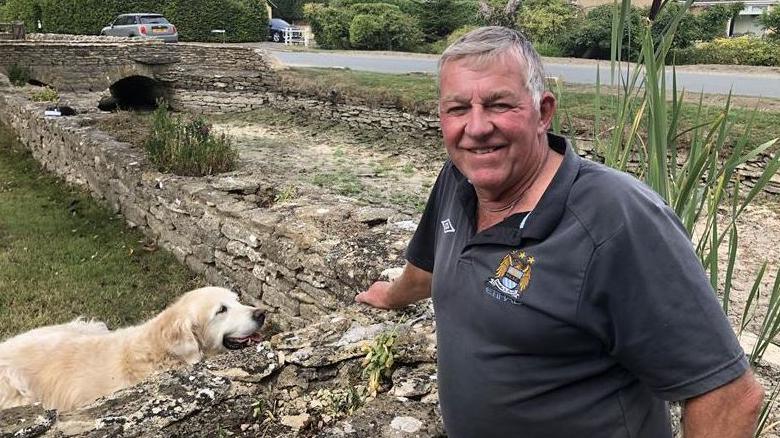Dry weather means no winter feed for farmer's cows
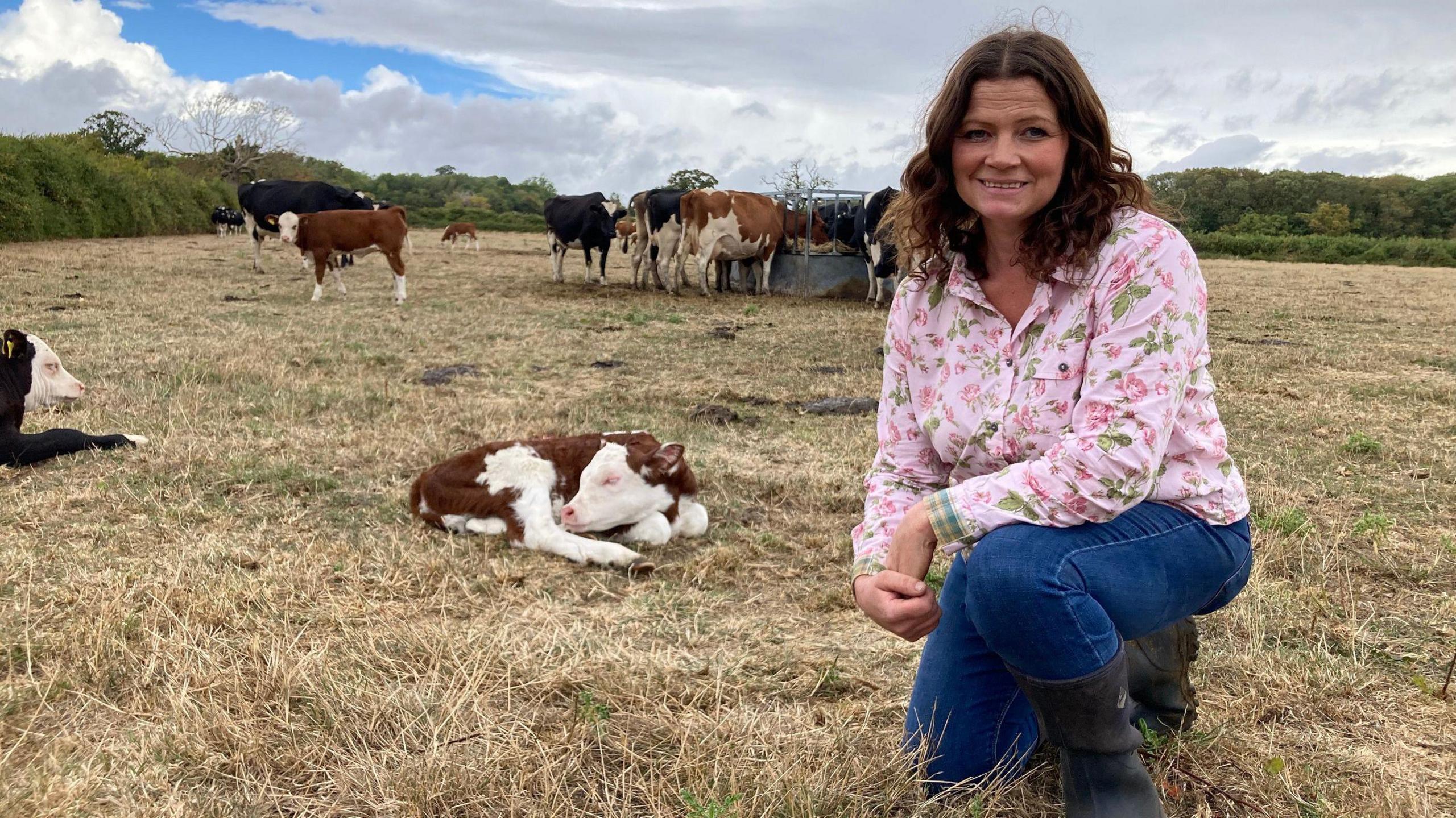
Jess Vaughan launched a fundraiser to keep her cows fed over winter
- Published
A dairy farmer fears having to reduce her herd because dry weather has left her with no winter feed.
Jess Vaughan, of Hardwicke Farm, in Hardwicke, Gloucestershire, said in a normal year the farm would produce enough to keep her 65 cows and calves going through winter.
But this year the business is having to buy winter food from elsewhere to last the cows until spring.
To pay for the food, Ms Vaughan has launched an online fundraiser – so far almost £20,000 has been donated of a £75,000 target.
The drought, Ms Vaughan said, had been "horrendous" and made life "very tricky".
"I'm determined to succeed because [the cows] must survive, they're our business partners, and very, very dependable ones as well," Ms Vaughan said.
She said it had been "heartbreaking" not being able to feed the animals fresh grass.
All of the organic milk produced by the cows is processed on the site.
"If I weren't able to raise the funds from our crowdfunding appeal, then we'd have to think of reducing our herd numbers, which I just think is unthinkable really," she said.
Her cows are older than herds at most other dairy farms and unusually are kept with their calves.
"What they stand for is a kind of more relaxed dairy farming approach, (it) is really worth fighting for," she said.
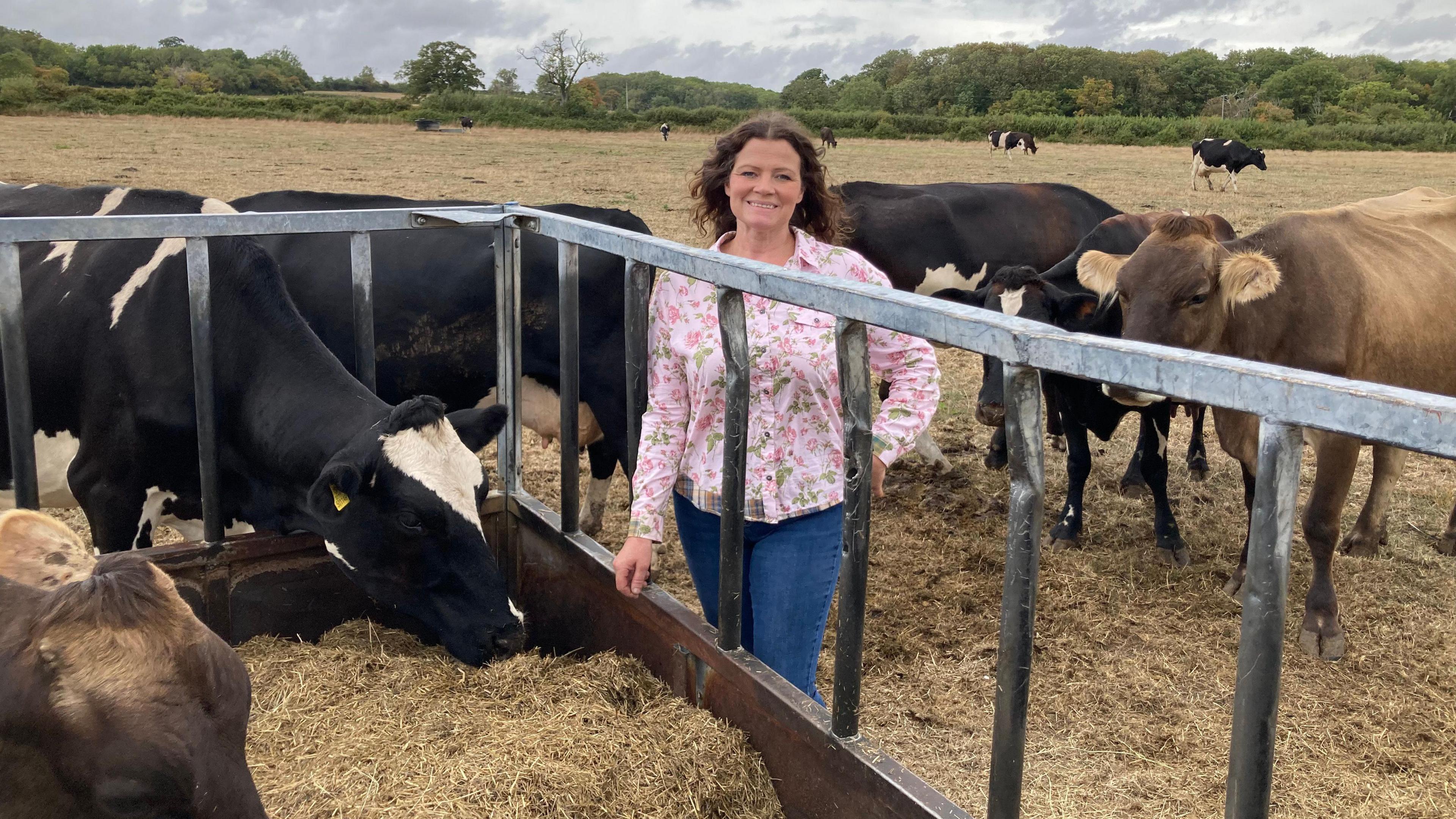
Ms Vaughan said not being able to feed her animals fresh grass was "heartbreaking"
The dry weather has been bad news for many other farmers.
Richard Chapman of Manor Farm in Longney, Gloucestershire said the business has far lost about £70,000 this year.
He said: "We planted wheat and most of that rotted. I planted again in the spring to get a cereal crop, spring barley, and we know what happened this spring, we had no rain."
This was "financially very serious", he said.
Mr Chapman expressed concerns for wildlife too. "I'm finding little birds drowned in water troughs because they are desperate for a drink," he said.
"Fish, frogs and newts from a pond had all gone – it is terribly hard times for wildlife as well."
Get in touch
Tell us which stories we should cover in Gloucestershire
Follow BBC Gloucestershire on Facebook, external, X, external and Instagram, external. Send your story ideas to us on email or via WhatsApp on 0800 313 4630.
Related topics
- Published23 August
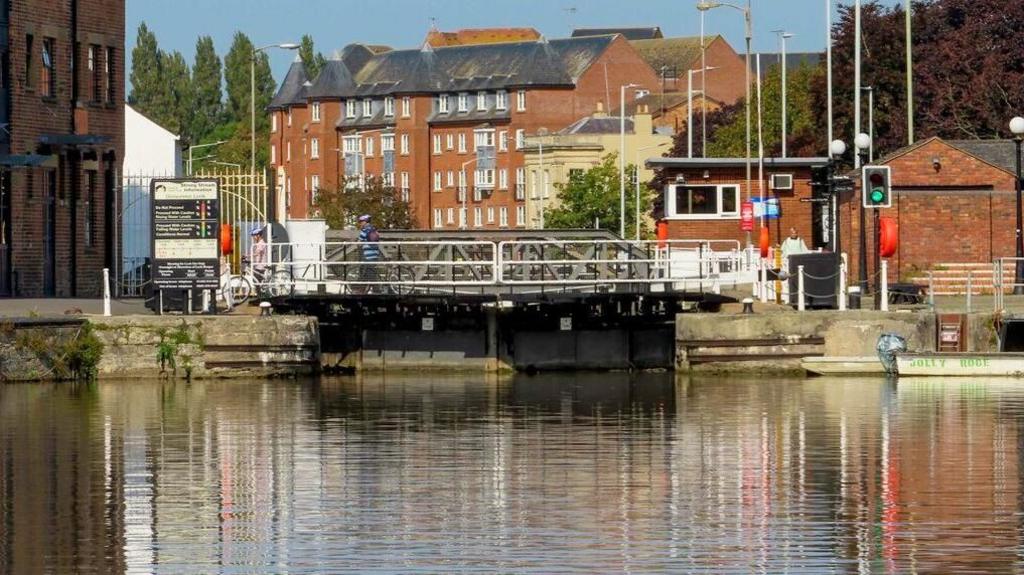
- Published16 June
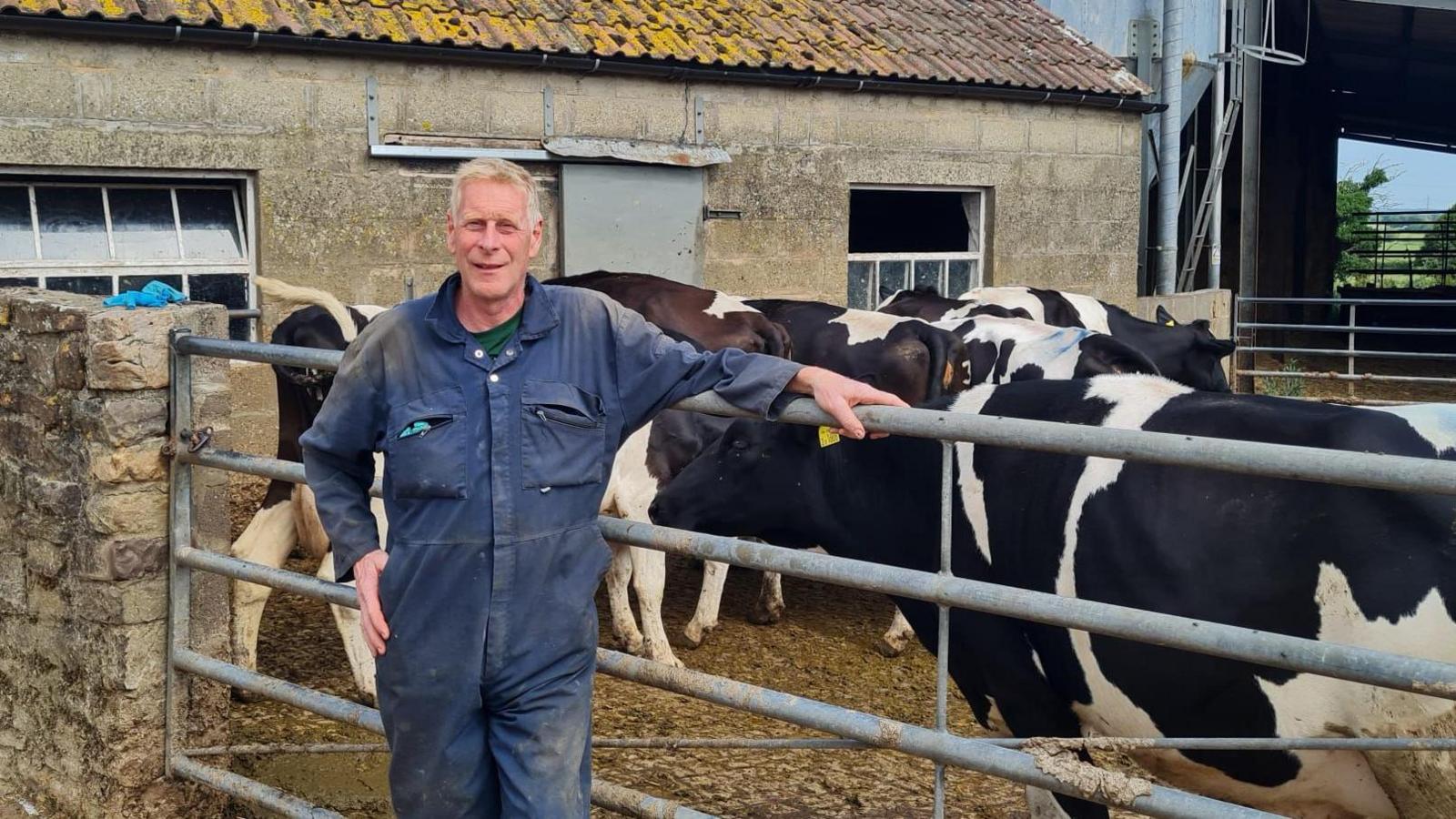
- Published20 August
